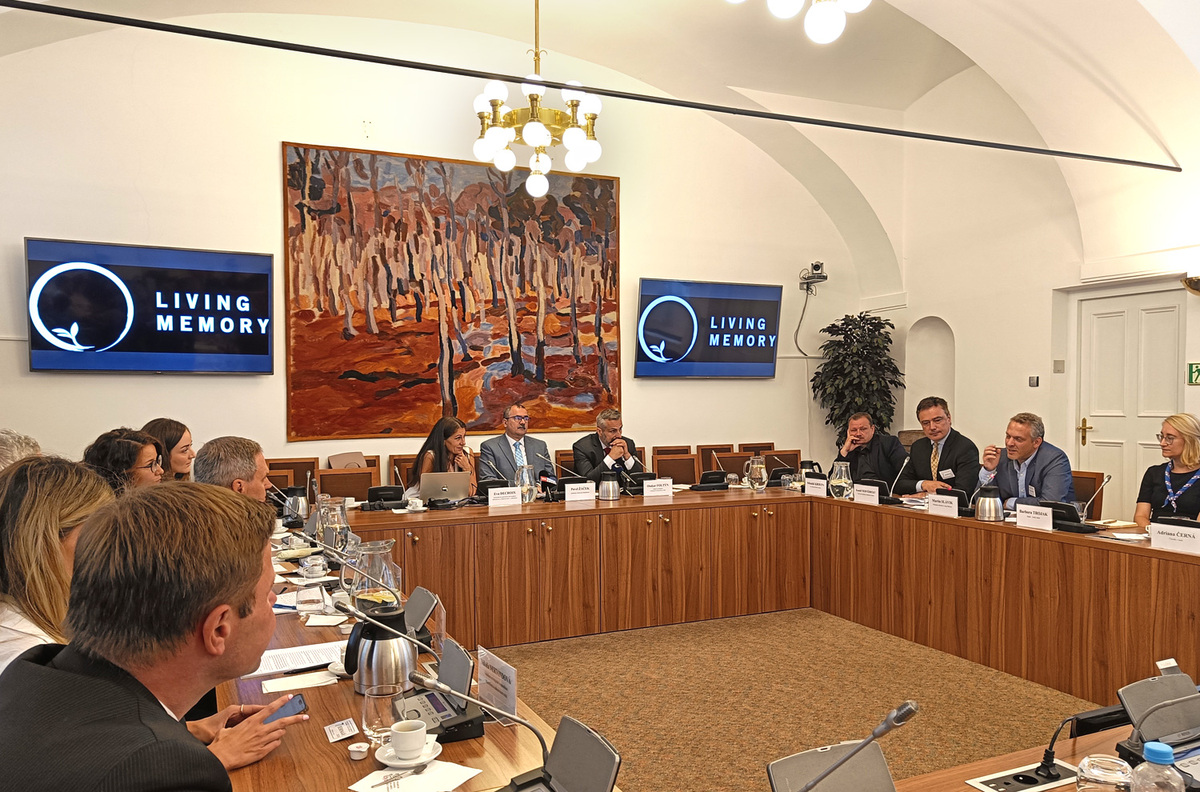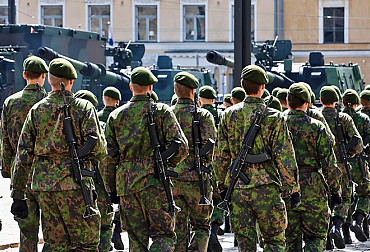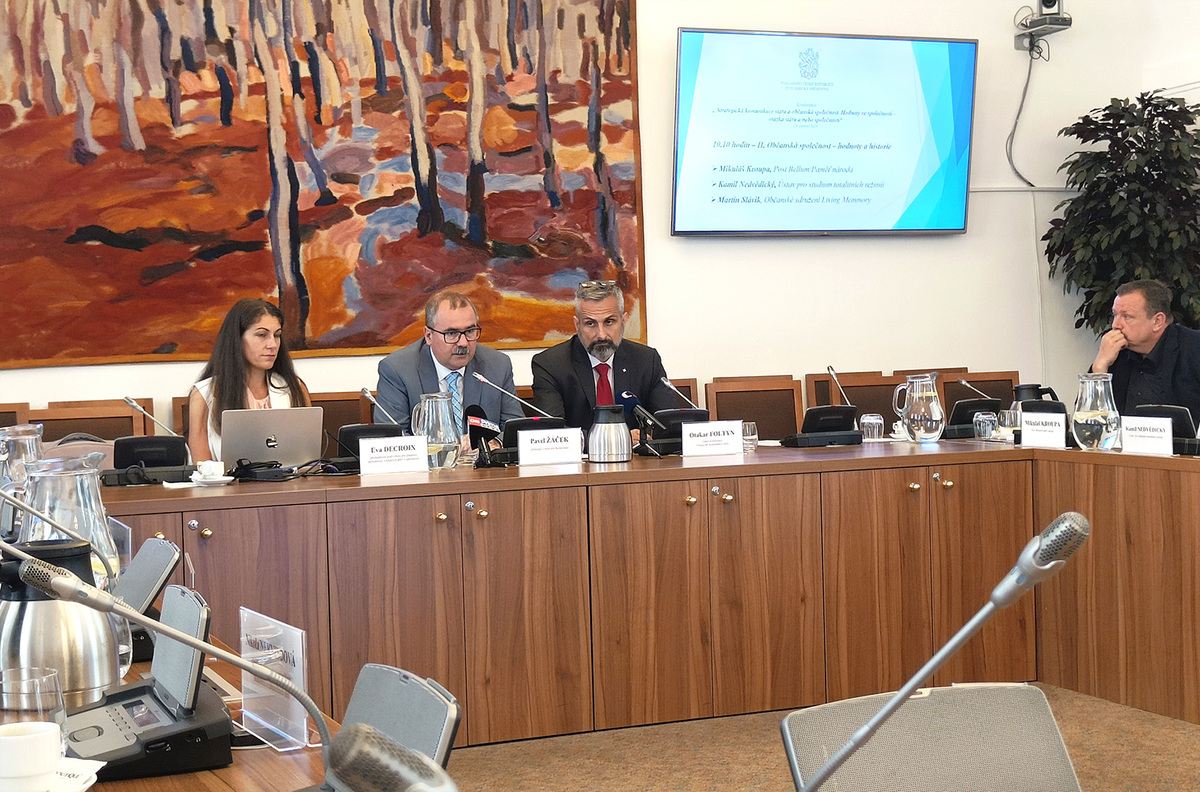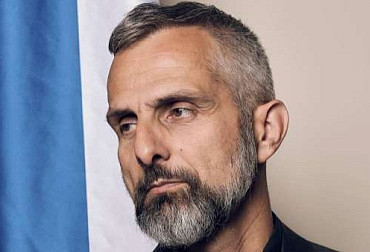Strategic communication as the basis for trust in the state and the key to maintaining democratic values
What is the role of the state in communicating values in society? Does civil society need strategic communication from the state to operate? And what are the risks of its absence or politicization? These questions were addressed at the conference "Strategic Communication of the State and Civil Society", which took place on 24 May in the Chamber of Deputies. The event was sponsored by Pavel Žáček, Chairman of the Committee on Security, and Eva Decroix, Chair of the Subcommittee on the Promotion of Democracy and Human Rights Abroad.

The event was opened by Pavel Žáček and Eva Decroix.In their opening speeches, both emphasised that strategic communication must be led and supported by the government, but remains a non-partisan issue."The key is to reach a consensus and ensure that this communication is seen as the interest of the state, not the coalition," Žáček said.He also added that the government's strategic communications coordinator will play a key role in reaching consensus and ensuring a unified approach for the benefit of the entire society.
Eva Decroix also noted at the start of the conference that many people mistakenly assume that the need for strategic communication is universally accepted. "Unfortunately, this is not the case and it is therefore a great achievement that the government has taken up this issue and created the role of strategic communication coordinator," said Decroix.
The discussion was very intense and focused on various aspects of strategic communication, including the importance of education, informing the younger generation and engaging with non-profit organizations. "NGOs and non-governmental organizations would be more than happy to help, but they need to know how and with what," said Nikoleta Nemečkayová, an analyst at the Association for International Affairs.
One of the most powerful moments was a speech by Mikuláš Kroupa, director and founder of the non-profit Post Bellum, who drew attention to the long-standing gaps between the younger and older generations. "Very often we see the statement that the veterans would no longer fight for this country because the values they put their lives on the line for have, in their opinion, disappeared," Kroupa said.
Post Bellum was by no means the only charitable organization to attend the conference. Barbora Trojak from Junák - Czech Scout also spoke there. "Czech Scout represents values such as empathy and compassion. It is also a living example of strategic communication that has been working for many years and is proving its worth," said Eva Decroix.

Representatives from the media also attended the event. From here too, there were calls for greater involvement and invitations to collaborate. Other prominent speakers included Kamil Nedvědický from the Institute for the Study of Totalitarian Regimes, Martin Slávik from the civic association Living Memory, Andrea Michalcová from the Center for Informed Society, Vendula Menšíková from the Network for the Protection of Democracy, Jiří Škvor from the Charity of the Czech Republic, David Klimeš from the Foundation for Independent Journalism, Bára Stárek from Thanks for Being Able, Adriana Černá from People in Need, and Martin Buchtík from STEM: Institute of Empirical Research and Ivo Zelinka from 91. Information Warfare Group.

In May 2024, the government decided to create the position of Government Coordinator for Strategic Communication of the State. It was officially opened on 30 May under the Government Office. The new coordinator will be tasked with preventing hostile influence operations aimed at destabilizing the state, building trust in democracy, and promoting citizen interaction with public policies in areas such as security or the Czech Republic's anchoring in the EU and NATO. It will also actively set themes in society that support strategic objectives in areas of vital national interest so that we are able to prevent disinformation and explain what the fundamental state-building principles of the Czech Republic are. Otakar Foltýn accepted the role of coordinator and was also one of the participants of the conference.

Here he emphasised that strategic communication is key to maintaining trust in the state and its institutions. It must be authentic and supported by the government, but it must not be confused with political communication. He cited as one of the positives that we have a good foundation in security strategy. "We have articulated where we want to go and clearly articulated threats. Without that, we would not have moved," Foltýn said.
At the conference, he also presented the basic principles of strategic communication and its importance in maintaining trust in state institutions. He identified the main themes of strategic communication as the alliance with NATO, the values of Europe, support for Ukraine, peace and constitutional values, including democracy.
The conference "Strategic Communication of the State and Civil Society" opened an important discussion, which is crucial for effective strategic communication of the state. The participants of the conference agreed that strategic communication is essential for maintaining democratic values and strengthening citizens' trust in state institutions. Non-partisan and authentic communication, which should be supported by the government, must remain separate from political communication. The next step will be to evaluate Foltýn's tenure, who will spend a total of six months in the position. So we will know where we have moved this year in terms of strategic communications around November.
After the conference, we asked Otakar Foltýn a few questions on behalf of the CZ DEFENCE editorial team:
What role do security forces and the military play in strategic communication? What issues in this area are the subject of strategic communication?
The role of the army and the security forces in the deteriorated security situation is of course important, but still only supportive. The executive power is in the hands of elected politicians and is therefore in principle civilian, including control over communications. But the subject of strategic communication will of course be Russian aggression as well as other security threats, including those in the information environment.
Strategic communication must take place across ministries and should be, as you said at the conference, apolitical. In what timeframe can this be achieved in our country?
Given that we have started, particularly in the face of the Russian threat, with a huge delay, we need to get a move on. At the same time, apoliticality is a prerequisite if the system is to be maintained and not seen by the new government as anything other than a standard instrument of the state.
Who is creating Stratcom, or will there be any guidance/manual on how to create this communication?
The design is my responsibility, the control and actual strategic communication is of course a matter for the government and state institutions.
There is talk about the key role of social media, what role should the public media play in strategic communication?
Logically, their main role is important, but we have to adapt to the modern environment and therefore use social media. The condition, however, is that we maintain standards there as well, not only of verifying information, but also of goodwill.




















